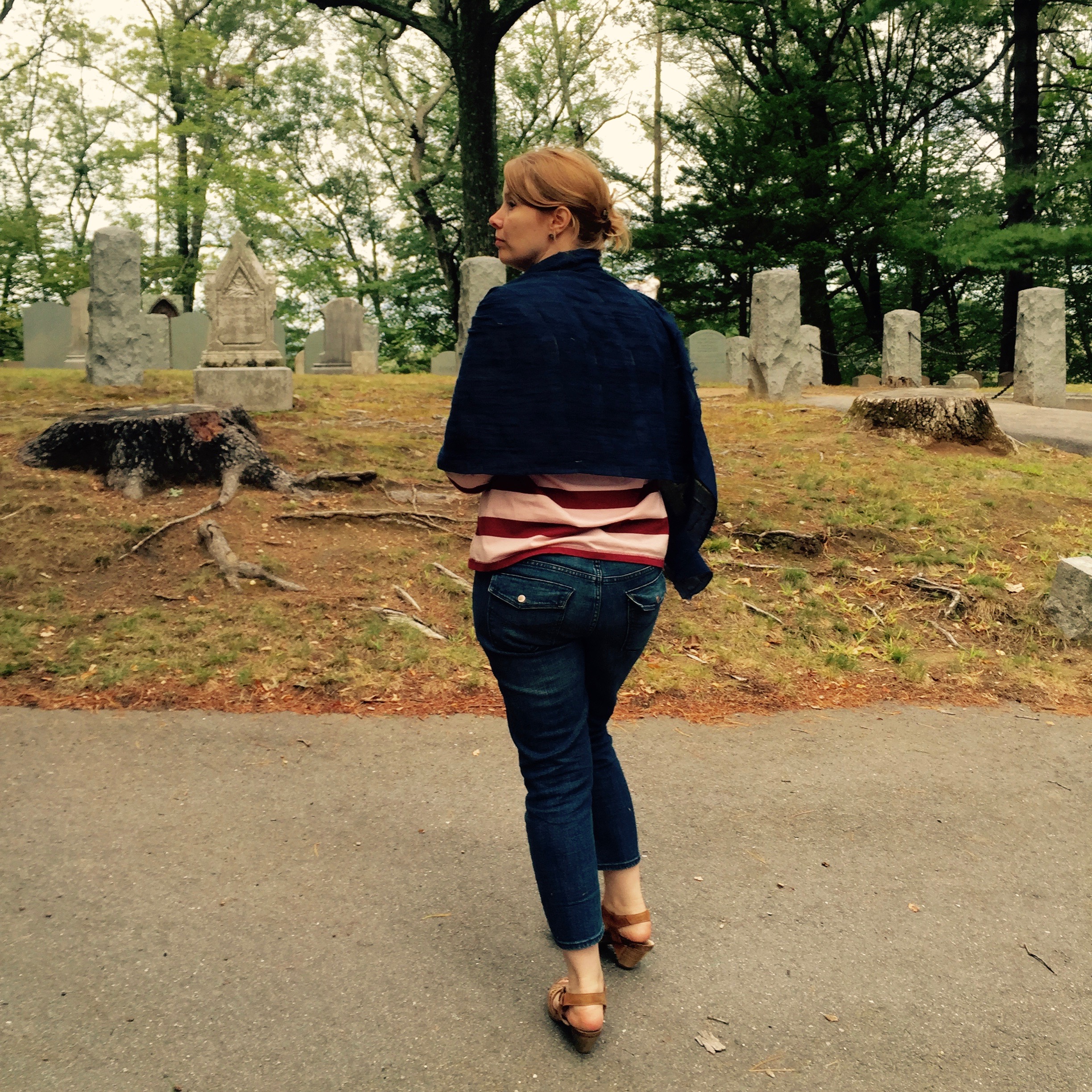"Love is the key to felicity, nor is there a heaven to any who love not. We enter Paradise through its gates only." — Bronson Alcott
After visiting the grave of transcendentalist philosopher, Ralph Waldo Emerson, Alia and I made our way over to the graves of Bronson Alcott and his daughter, Louisa May Alcott.
The Alcott family was represented by a more or less uniform row of identical rough and weathered markers with initials on them.
We came to the marker of Louisa May Alcott first, the second daughter of Bronson Alcott and author of Little Women (1868). She actually had two markers—a rough stone marker in front with her initials upon it, and a rectangular marble slab behind it with her name upon it.
The stone marker read “L.M.A. 1832-1888” and had a collection of stones, pine cones, sticks, and a few pennies at its base.
The white marble slab behind it read “Louisa M. Alcott,” and was covered and surrounded by pennies, a few nickels, and stones. The coins were likely to pay the boatman, Kharon, to take her across the River Styx and into the Otherworld (though Kharon’s obol was originally a coin placed in the mouth). In this period, educated Americans were well-versed in Greek mythology and often laid coins upon the eyes of the dead, as was done with Abraham Lincoln. I guessed the custom of leaving coins here was probably following the same reference.
Behind the while marble slab was a small American flag with a star upon it, noting that she was a veteran of the Civil War, serving as a nurse in Washington D.C.
We knelt down to meditate and pray before them, and afterward stood up, taking turns reading various quotes from her:
If I can do no more, let my name stand among those who are willing to bear ridicule and reproach for the truth's sake, and so earn some right to rejoice when the victory is won. — Louisa M. Alcott, Letter to the American Woman Suffrage Association (1885)
Far away in the sunshine are my highest aspirations. I may not reach them, but I can look up and see their beauty, believe in them, and try to follow where they lead. — Louisa M. Alcott, quoted by Elbert Hubbard
Simple, sincere people seldom speak much of their piety. It shows itself in acts rather than in words, and has more influence than homilies or protestations. — Louisa M. Alcott, Little Women (1868)
Love is the only thing that we can carry with us when we go, and it makes the end so easy. — Louisa M. Alcott, Little Women (1868)
Next to Louisa May is her youngest sister, May Alcott (1840-1879), a painter and the model for “Amy March” (Amy being an anagram for May) in Little Women. Next to her is Elizabeth Sewell Alcott (1835-1858), the model for “Beth March” (short for Elizabeth) who died at the age of 22. At the moment of her death, it is said that Louisa and her mother saw a ghostly mist rising from the body. At her funeral, Ralph Waldo Emerson and Henry David Thoreau served as pallbearers. She is buried next to her mother, Abby May Alcott (1800-1877), the model for “Marmie,” a tireless social activist, being both an active suffragette and abolitionist. Anna Bronson Alcott, the model for “Meg” is also apparently buried nearby, but we did not see her grave.
Finally, we came to the grave maker of transcendentalist, Amos Bronson Alcott, simply “A.B.A. 1799-1888” on his marker. We again knelt and prayed, and read a quote from Alcott:
Love is the key to felicity, nor is there a heaven to any who love not. We enter Paradise through its gates only. — Bronson Alcott, Table Talk (1877)











